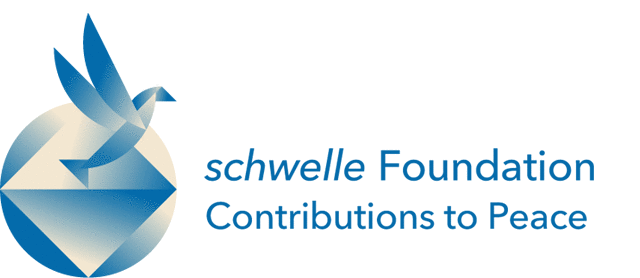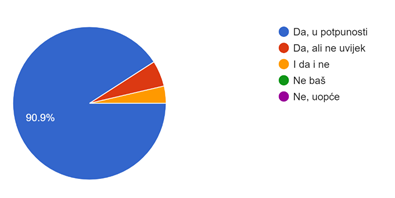These days, a small group of six long term peace activists from Croatia is establishing Institution „Politics of Nonviolence“ – Adult education for peace. The first action of the yet not fully registered institution is a direct entrance into the political sphere – a survey to understand the meaning of nonviolent politics among the actors/candidates involved in the local elections scheduled for May 16th, 2021. The survey was sent to some 400 email contacts all across Croatia with 95 responses, 55 from political actors and 40 from civil society actors. Thus, the response rate is around ¼, but a detailed analysis is yet to be done. However, a first reaction could be: How comes that the response from so called 'political' actors’ is by 1/3 bigger than the response from civil society organisations?
A possible answer could be found in the shift happening during the last decade in Croatia, but looking back into the 1990s is helpful, too. During the 1990s war times, the only real opposition to the self-centered, nationalistic, patriotic, anti-Yugoslav dominant discourse was to be found among human rights and peace organisations and a few independent media. Whether it should be called 'political opposition' or simply a human rights prioritizing discourse is perhaps a topic for some other analysis. After 2000, with the change of government and joining the track toward the EU, the role of civil society increased. They (we, actually) were needed, also in the role of a precious watchdog in the negotiations about achieving the standards given by the EU. It was, in a way, pretty much a 'golden time', which is an overstatement but illustrates the feeling of prosperity, distancing from war rhetoric, caring about minorities and vulnerable ones, common efforts in building a transparent and responsible rule of law state - in short, showing to the EU: We are good ones. All that ceased after 2013 and joining the EU, simultaneously witnessing the rise of the populists' movements in other parts of Europe and the World. The peak of regression was about 2016 when Croatia had its probably worst government with PM parachuting from the diaspora, a filo-fascist minister of culture who did not speak the language, war criminals among VIPs at the inauguration of the newly elected right-wing president, the overtaking of several crucial state regulatory institutions, and a harsh attack on culture and civil society organisations.
In that time, about half a decade ago, many prominent civil society activists started to consider entering the political arena as a way of continuation of the struggle for human rights, the rule of law, ecological and gender issues etc. In all decades prior to that time, daily/party/election-based politics were considered 'not our sphere'. „We have no time to wait for generational changes while many achievements are falling down and the pressure on culture, media and civil society keeps rising.“ - could be a summary of the thinking in that time when public protests for the preservation of common goods in Zagreb transferred into political battles in the Zagreb City Council. A core group of activists from those public protests are now, month before the local elections, seen as key favourites to win and govern the city of Zagreb as a „green left citizen coalition“.
In the last five years some new political parties emerged on all parts of the political spectrum, but a real change is happening on the Center to left spectrum, if this old-fashioned view still makes sense. A green-left coalition consisting of Možemo! (We can!), Nova Ljevica (New left) and Radnička Fronta (Workers' Front) entered as the biggest surprise the Croatian parliament with 8 MPs after the Summer 2020 election.
What it all has to do with peace movement in Croatia? That is probably a question for a variety of social science researchers in times to come. The view of insiders speaks about decades-long discussions about the relationship between (responsible) citizens and community/state structures, about a fear 'to get dirty' by entering party/daily politics, about hatred toward nationalists, extremists, war lords in politics, about disgust with the way politics happen. At some point in time, working on social change appears to be too slow, too difficult and insignificant in an environment which is supposedly 'peaceful' and where some concrete shifts are expected to happen. In (post)war times every small step has mattered, but once finding ourselves in the EU family it became unbearable to witness attacks on media, minorities, civil society, environment and particularly women, at a scale not seen even in the dark 1990s.
Some of our colleagues from the Center for Peace Studies, Zagreb,Green Action and other CSOs are among the key people in the new green-left movement, along with a new generation of people from the areas of academia, culture, and entrepreneurship, supported by intellectuals who were publicly mostly quite so far but finally found hope for a real change. Some of the rest of us remain close to them as supporters of the needed change – Croatia is in many comparisons at the bottom of the EU, leading in corruption, fuelling relations with non-EU members (Serbia, BiH) with memories of 1990s war wounds whenever needed.
Our group of six is described on our web page as follows:
„The desire to work together lasts for years. We are not young, although there are younger ones among us. The average age is well over fifty years and more than a quarter of a century of active peace work. Talks during the annual ceremony of Peace Award "Krunoslav Sukić" were the initial impetus and then we started meeting regularly more than a year ago. Peace work around the Osijek Center for Peace, engagement around the Peace Award and the inspiration that some of us receive from the faith are some of the circles that have united us. We knew that we wanted to act in public, that we had to speak more clearly and loudly about non-violence, that we were coming to a mature period when we had nothing to calculate. Just as the war of the early 1990s frightened us, we look similarly at the messages that climate change brings us - our way of life, which sees nature and life as a means rather than a single living organism, is wrong. The pandemic only pushed us, convinced us that change cannot be expected, that it is also part of the planet's response to the human destruction of ecosystems.
We have learned along the way that peace work is not only linked to war, today it is a response to the messages of climate change, to pandemics, to capitalism that produces such differences among people that in times of greatest crises that gap deepens drastically. The future has arrived, as unpredictable as it is serious, the time for the right answers is running out.
The institution emerged as a form during 2020 and these days its registration is nearing completion. We want to spread a culture of nonviolence that is primarily active, which is reflected in our daily behaviors, relationships, and activities. We are open to equal communication and cooperation to all those interested in non-violence policies, to work on improving relations with other people and living beings, the planet Earth.
Our identities are diverse, it is no coincidence that there are more women among us, we have coaches / educators, university lecturers, mediators, doctors, theologians and philosophers, and we have in common that we are committed to peace.“
We, as institution of Politics of Nonviolence finally arrived at Croatian reality. The survey sent to some 400 addresses made our existence visible. In the coming days before the local elections in May we are going to present our findings publicly. The ninety-five responses to our survey are our first initial circle of contacts all across Croatia. The response from 55 political actors to question 12 gives us our common ground:
„Connectivity, action and well-being are the pillars of sustainable development. We are connected in one ecosystem for which we need to take responsibility, in which we need to act with a view to sustainable development, and the achievement of quality of life and common good. To what extent do you agree?“ (90,9 % “Yes, I fully agree”, 5,5 % Yes but not always, 3,6 % Yes and no).
More information <link 69 - internal-link "Opens internal link in current window">here: </link>


